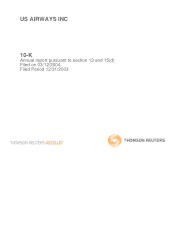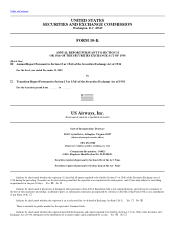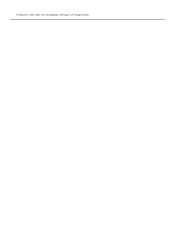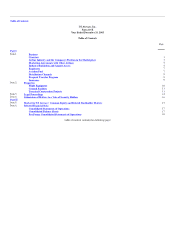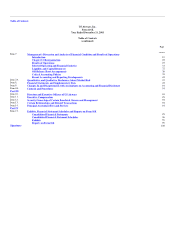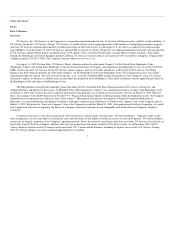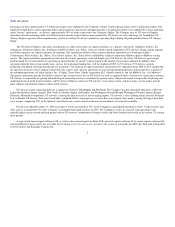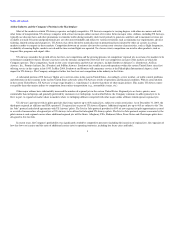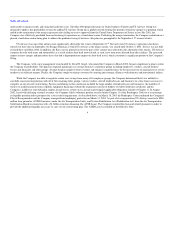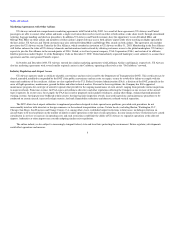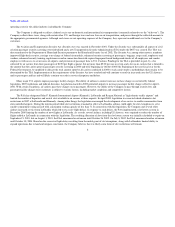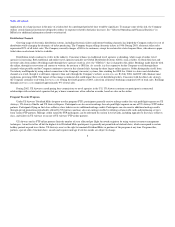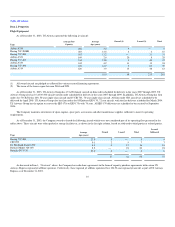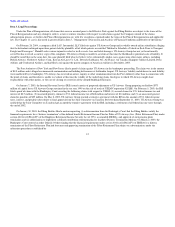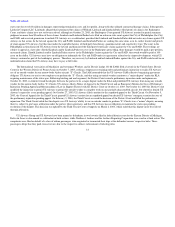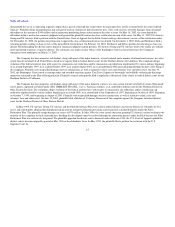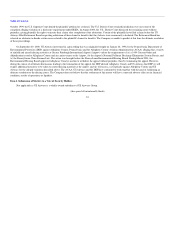US Airways 2003 Annual Report Download - page 11
Download and view the complete annual report
Please find page 11 of the 2003 US Airways annual report below. You can navigate through the pages in the report by either clicking on the pages listed below, or by using the keyword search tool below to find specific information within the annual report.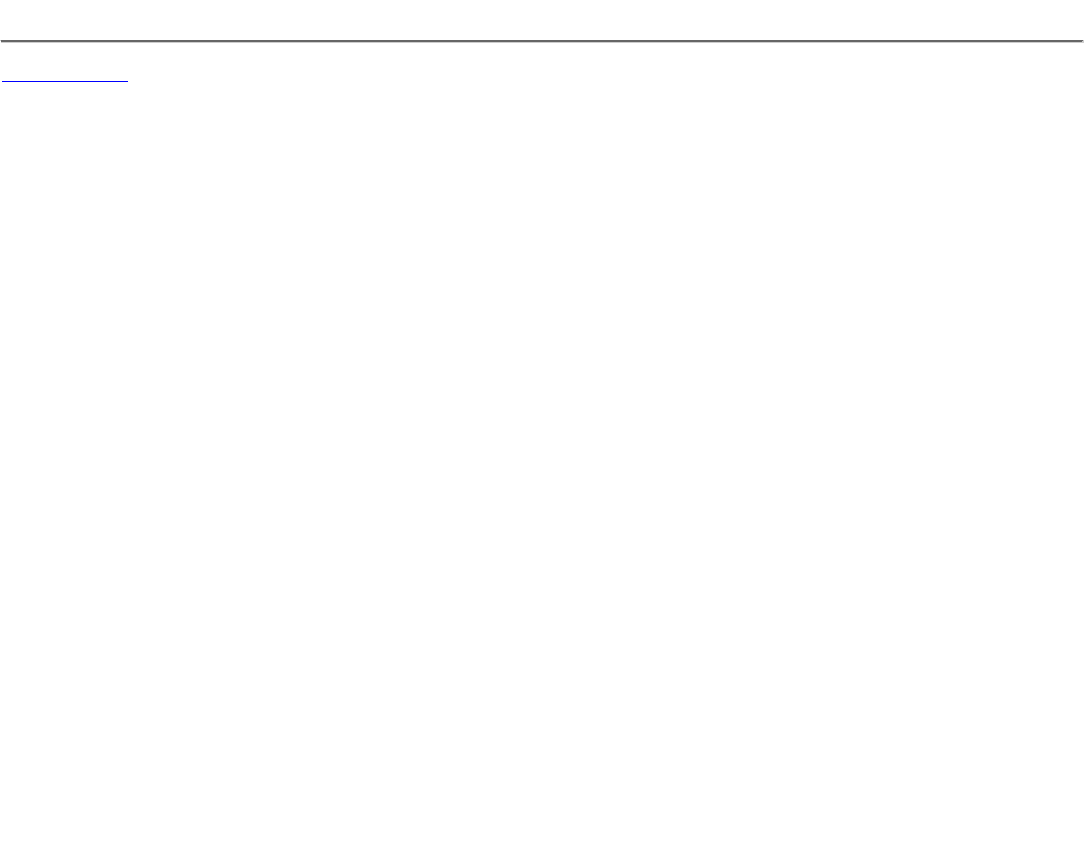
Table of Contents
operating costs for the airline industry, including the Company.
The Company is obligated to collect a federal excise tax on domestic and international air transportation (commonly referred to as the "ticket tax"). The
Company collects these taxes, along with certain other U.S. and foreign taxes and user fees on air transportation, and passes through the collected amounts to
the appropriate governmental agencies. Although such taxes are not operating expenses of the Company, they represent an additional cost to the Company's
customers.
The Aviation and Transportation Security Act (Security Act) was enacted in November 2001. Under the Security Act, substantially all aspects of civil
aviation passenger security screening were federalized and a new Transportation Security Administration (TSA) under the DOT was created. The TSA was
then transferred to the Department of Homeland Security pursuant to the Homeland Security Act of 2002. The Security Act, among other matters, mandates
improved flight deck security; carriage at no charge of federal air marshals; enhanced security screening of passengers, baggage, cargo, mail, employees and
vendors; enhanced security training; regulations issued in connection therewith require fingerprint-based background checks of all employees and vendor
employees with access to secure areas of airports; and provision of passenger data to U.S. Customs. Funding for the TSA is provided, in part, by a fee
collected by air carriers from their passengers of $2.50 per flight segment, but not more than $5.00 per one-way trip, and a fee on air carriers that is limited to
the amount that the carrier spent on passenger security screening in 2000 and will, beginning in October 2004 (the beginning of the next fiscal year for the
Federal Government), be modified to allocate the total amount spent by all carriers combined in 2000 to each carrier under a methodology that remains to be
determined by the TSA. Implementation of the requirements of the Security Act have resulted and will continue to result in increased costs for US Airways
and its passengers and has and will likely continue to result in service disruptions and delays.
Many major U.S. airports impose passenger facility charges. The ability of airlines to contest increases in these charges is restricted by federal
legislation, DOT regulations and judicial decisions. Legislation enacted in 2000 permitted airports to increase passenger facility charges effective April 1,
2001. With certain exceptions, air carriers pass these charges on to passengers. However, the ability of the Company to pass-through security fees and
passenger facility charges to its customers is subject to various factors, including market conditions and competitive factors.
The FAA has designated John F. Kennedy International Airport (Kennedy), LaGuardia and Reagan National as "high-density traffic airports" and
limited the number of departure and arrival slots available to air carriers at those airports. In April 2000, legislation was enacted which eliminates slot
restrictions in 2007 at LaGuardia and Kennedy. Among other things, the legislation encouraged the development of air service to smaller communities from
slot-controlled airports. During the interim period while slot restrictions remained in effect at LaGuardia, airlines could apply for slot exemptions to serve
smaller communities using aircraft with a maximum seating capacity of less than 71. In connection with this legislation, the Company and several other
airlines increased service from LaGuardia which led to excessive flight delays. In response to such delays, the FAA implemented a slot lottery system in
December 2000 limiting the number of new flights at LaGuardia. As a result, several airlines, including US Airways, were required to reduce the number of
flights added at LaGuardia in connection with this legislation. The resulting allocation of slots from the slot lottery system was initially scheduled to expire on
September 15, 2001, but on August 3, 2001, the FAA announced an extension until October 26, 2002. On July 8, 2002, the FAA announced another extension
until October 30, 2004. Based on the excessive flight delays resulting from the initial grant of slot exemptions, along with LaGuardia's limited ability to
expand operations due to land and airspace constraints, the Company believes that it is likely some form of slot restrictions will remain
6

